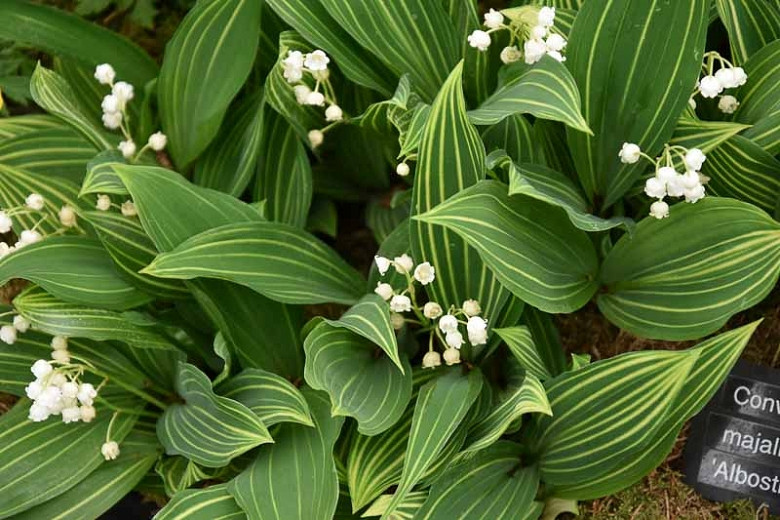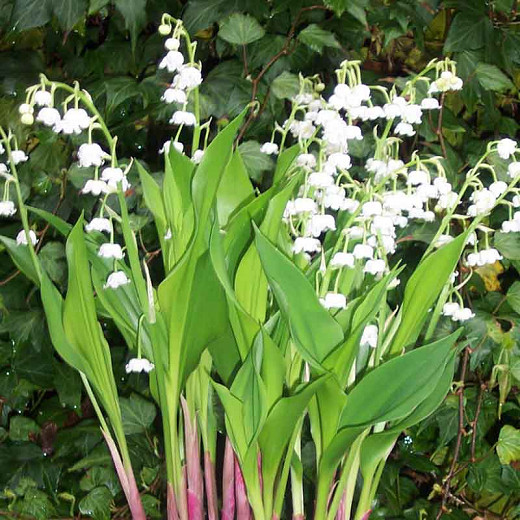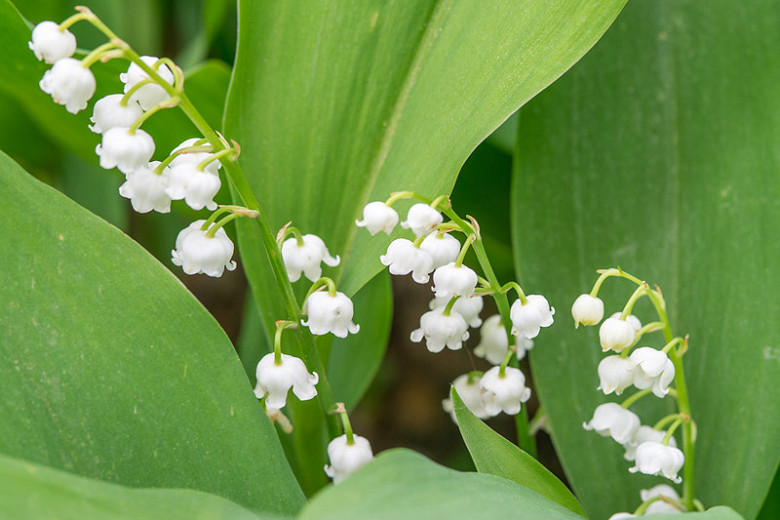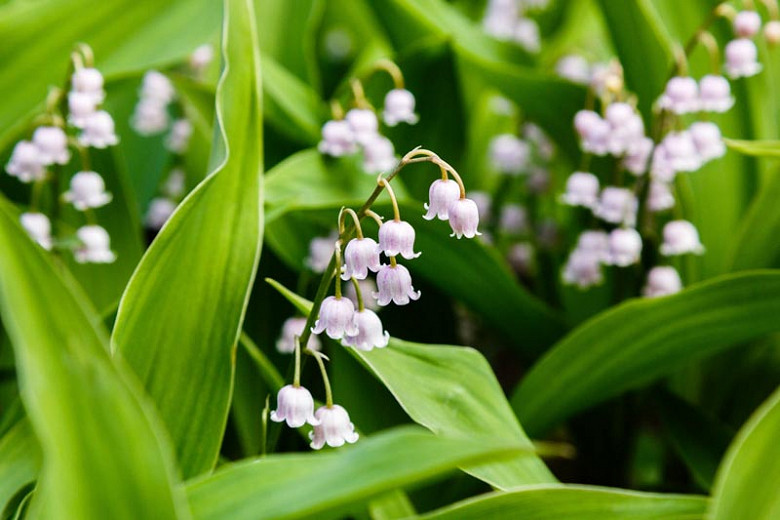Convallaria majalis Albostriata (Lily of the Valley)
Noted for its ravishing variegated foliage, Convallaria majalis ‘Albostriata’ (Lily of The Valley) is a low-growing rhizomatous perennial forming a lush, spreading, weed-smothering groundcover. Blooming for several weeks in mid to late spring, sweetly scented, nodding, bell-shaped, white flowers hang along slightly arching flowering stems.
Noted for its ravishing variegated foliage, Convallaria majalis 'Albostriata' (Lily of The Valley) is a low-growing rhizomatous perennial forming a lush, spreading, weed-smothering groundcover. Blooming for several weeks in mid to late spring, sweetly scented, nodding, bell-shaped, white flowers hang along slightly arching flowering stems. Renowned for their heady scent, they rise above the showy foliage of paired elliptic green leaves striped lengthways with creamy white. A real charmer and an outstanding performer, Lily of The Valley is trouble-free, requires little maintenance, and is deer and rabbit-resistant. Long-lived, it naturalizes easily to form extensive colonies.
- Grows up to 6-8 in. tall (15-20 cm). It will spread quickly by rhizomes to form dense colonies in good growing conditions.
- Thrives in part shade to full shade in evenly moist, fertile, organically rich, well-drained soils. It will grow in full sun in northern regions if the soil remains moist. Tolerates a wide range of soil conditions, including clay soils. Dry conditions will tend to restrict its growth.
- A great naturalizer, it is an excellent choice as a ground cover and creates thick mats of fluted, dark green leaves. Can be grown under trees too.
- Wonderful as fresh-cut flowers. A favorite of florists!
- Lily of the Valley greatly benefits from an annual application of organic compost each fall.
- Propagate by division in autumn.
- Toxic if ingested. Toxic to dogs, toxic to cats, toxic to horses.
- Convallaria majalis species is native to Europe, but has escaped cultivation and naturalized throughout much of temperate eastern and central North America plus parts of the Northwestern U.S. Can become invasive where well adapted.
- Find where this species is invasive in the United States.
- Discover beautiful U.S. native plant alternatives.
Requirements
| Hardiness | 2 – 7 |
|---|---|
| Heat Zones | 1 – 7 |
| Climate Zones | 1, 1A, 1B, 2, 2A, 2B, 3, 3A, 3B, 4, 5, 6, 7, 14, 15, 16, 17, 18, 19, 20, A1, A2, A3 |
| Plant Type | Perennials |
| Plant Family | Convallaria – Lily of the Valley |
| Exposure | Full Sun, Partial Sun, Shade |
| Season of Interest | Spring (Mid,Late) |
| Height | 6" – 8" (15cm – 20cm) |
| Spread | 8" – 2' (20cm – 60cm) |
| Water Needs | Average |
| Maintenance | Low |
| Soil Type | Clay, Loam |
| Soil pH | Acid, Alkaline, Neutral |
| Soil Drainage | Moist but Well-Drained, Moisture Retentive |
| Characteristics | Cut Flowers, Fragrant, Showy |
| Tolerance | Clay Soil, Deer, Rabbit, Dry Soil |
| Garden Uses | Ground Covers, Underplanting Roses and Shrubs |
| Garden Styles | Informal and Cottage |



